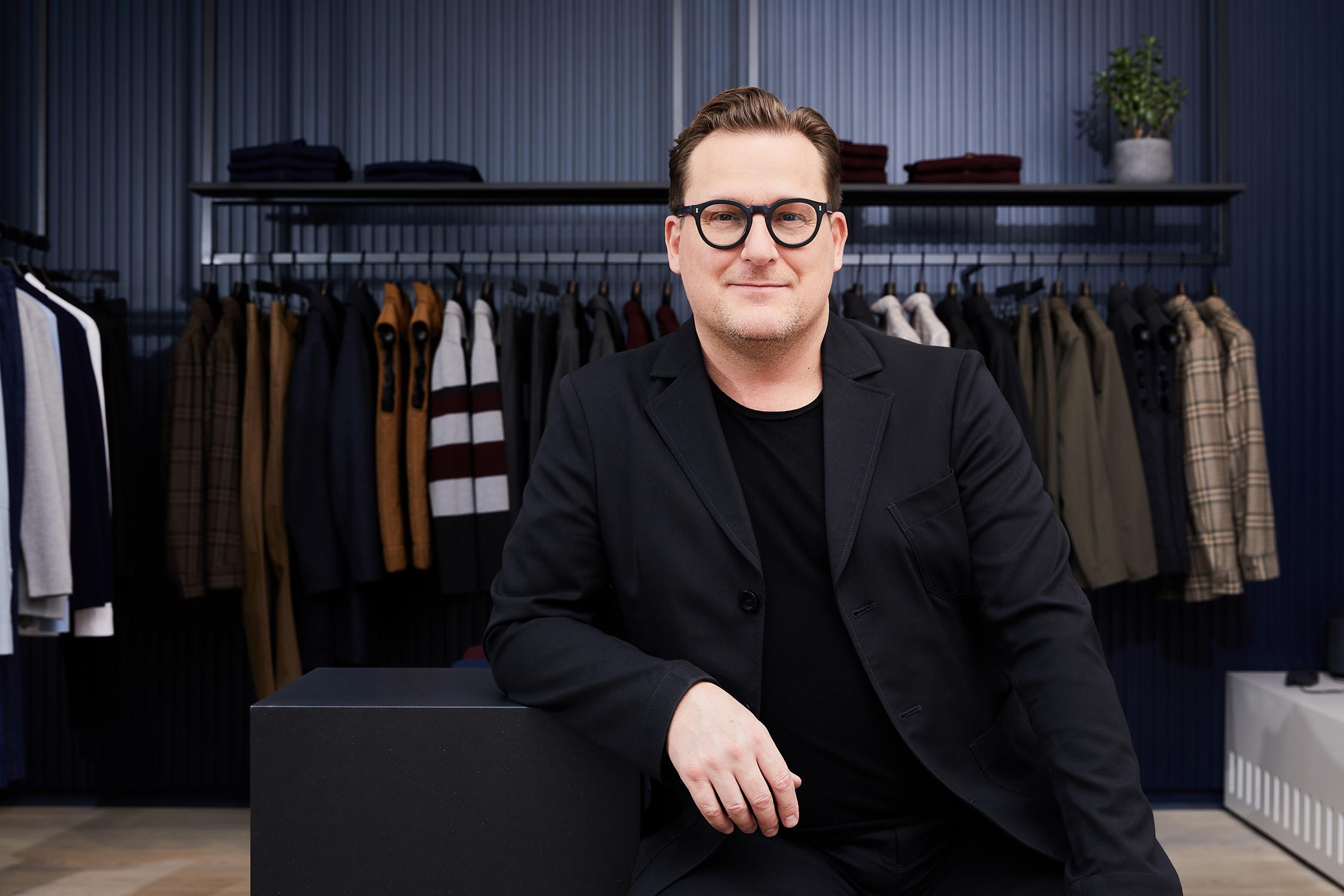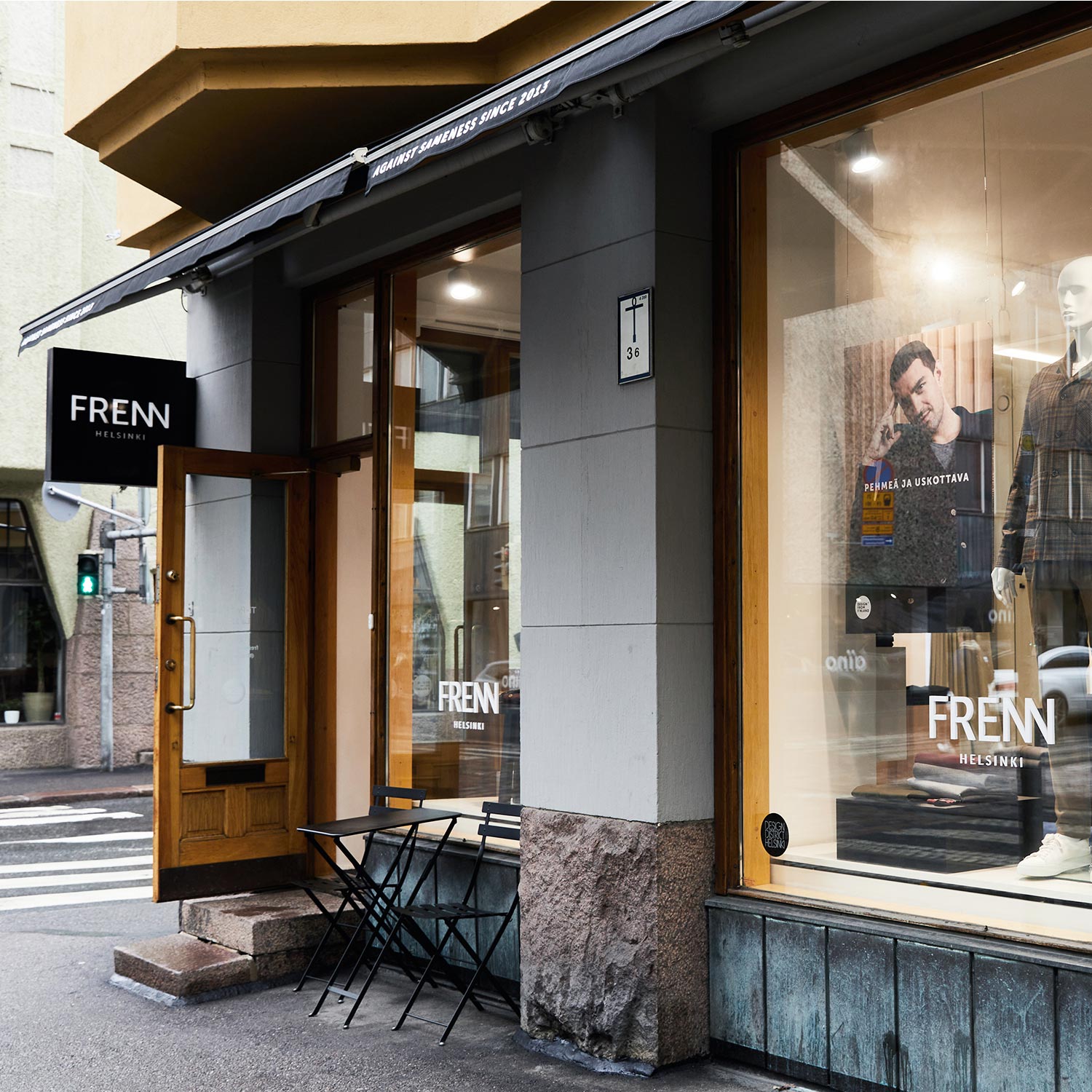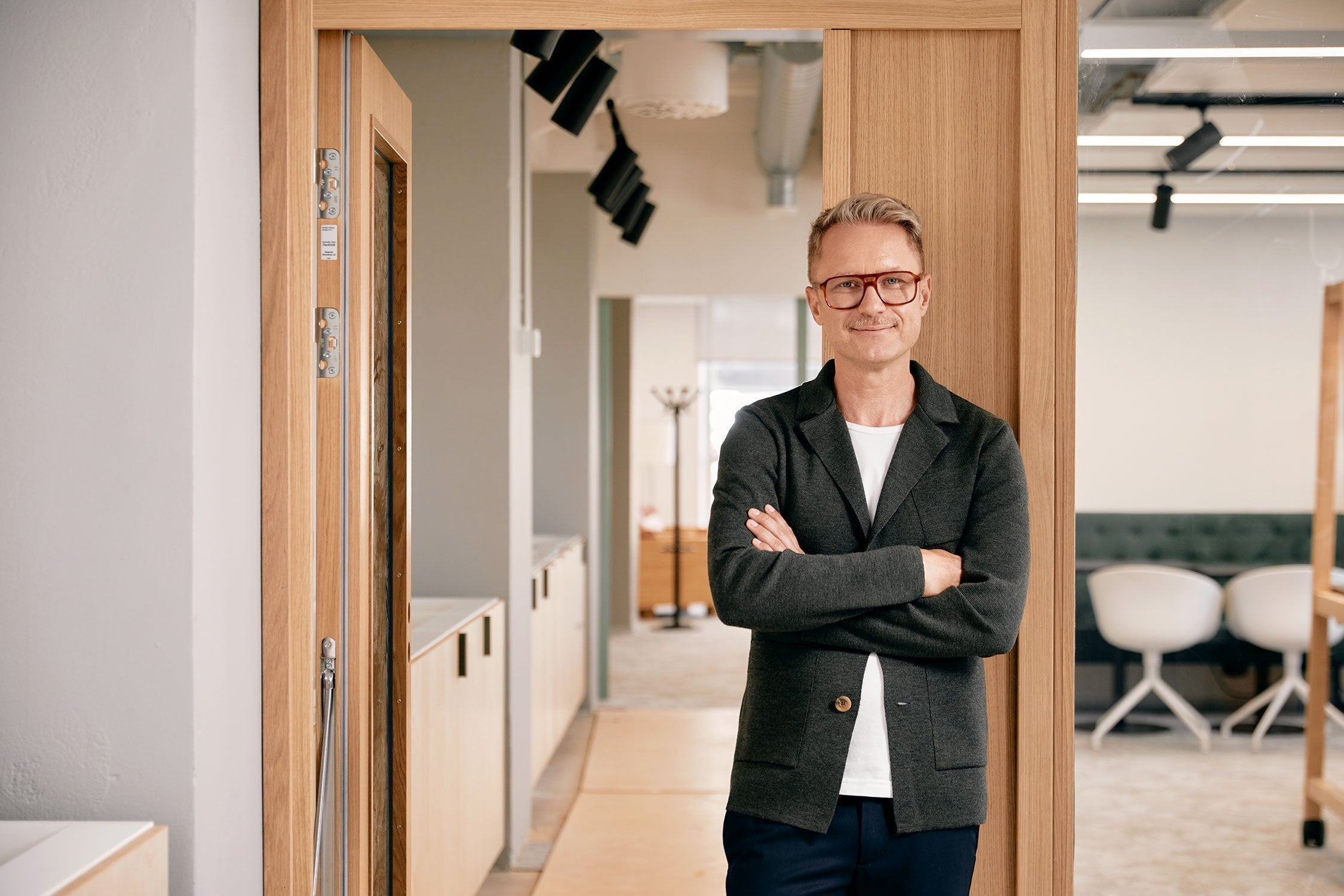
Trash Is Still Trash — Even at the Flea Market
Recycling isn’t a new idea, but thankfully it’s making a comeback. What truly matters, however, is offering people well-made products and useful services they actually want to use, writes Jarkko Kallio, founder of FRENN.
Carbon offsets and flea markets have become the indulgence trade of our time — a way to buy a clear conscience without addressing the root problem. But the real task is still the same: to create durable products and practical services that genuinely serve people’s needs.

From Father to Son
It’s almost amusing to hear how “circular economy innovation” is hailed as something revolutionary — as if repairing clothes were a brand-new concept.
There used to be sayings like “the poor can’t afford cheap things” or “from mother to daughter, from father to son.” They all carried the same message: quality, timelessness, and durability. Clothes were made to last, mended, and passed down from one generation to the next.
That wisdom was largely lost in the industrial age. Fortunately, recycling principles are now inspiring new large-scale business models that point us toward a more sustainable future. Second-hand stores have turned into stylish lifestyle boutiques, and products and materials are once again gaining value.

Where Emissions Begin
The fashion industry’s real challenges lie in production — in how and where new garments are made. The biggest share of the carbon footprint usually comes from materials. The key is to understand the impact of your operations and take tangible action.
Thankfully, more textile mills now offer fabrics made from recycled fibers, which have a significantly smaller environmental impact than those made from virgin fibers. This is how circular solutions can truly reach the source of emissions.
If we keep producing tons of waste every day, humanity will eventually drown in it. In the worst cases, new clothes are shipped straight to landfills or burned. That’s something we simply can’t afford anymore.

For the Sake of Variety
New clothes have become so cheap that we’ve forgotten how to value them. They’ve turned into tools for satisfying our craving for novelty. Fast fashion has brought excitement and joy — but can it go on forever? Many ultra-fast fashion brands like Shein produce clothes so poorly made that they can’t even be resold secondhand. It’s madness.
Surveys show that consumers claim to value responsibility and make choices accordingly. Yet in the store, a lower price often changes the decision — which, given today’s economy, is understandable. Still, a product made transparently and ethically will always cost more. It simply can’t compete on price with mass production in the Far East.
High-quality, eco-certified materials are more expensive, and in low-risk EU countries like the Baltics, labor costs are higher. But ultimately, each of us is responsible for our own choices.
The most sustainable option is to buy a high-quality garment you love — and wear it for as long as possible. A favorite piece doesn’t sit forgotten in the closet. Repairing it extends its life, and proper recycling gives it a new one. That’s how it used to be done — and should be again.

Use – Repair – Recycle
I wrote those three words into FRENN’s brand concept back in the summer of 2012, before the brand even had a name. That mindset justified our decision to launch a new clothing label at all.
By then, Antti Laitinen and I had both worked in the textile and fashion industry for over 15 years. We had seen the realities — and the problems. We decided to do better, and we’re still on that path.
Alongside offering our customers a high-quality, versatile product, we provide lifetime services: alterations, repairs, and recycling. Every FRENN garment comes with a one year manufacturing guarantee.

Responsibility Happens in Everyday Actions
The most important thing is to offer customers durable products and useful services they actually want to use. Without customers, there’s no business. People don’t buy “responsibility” — they buy attractive, practical products that make their lives easier and bring lasting joy.
Every part of a product’s life cycle has a role to play. There can be no new business models in consumer retail without high-quality, long-lasting products — and no new products should be made without services that help extend their life. Let’s keep the good in circulation.
Jarkko Kallio is the co-founder and CEO of Finnish menswear brand FRENN. The company has twice received the highest score in the responsibility report by Eetti ry (Pro Ethical Trade Finland), which assessed 35 Finnish clothing brands for their climate, environmental, and human rights practices, product longevity, and transparency.



